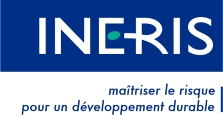Regulation (EU) 2019/10211 sets limit values for perfluorooctane sulfonic acid (PFOS) and its derivatives, as well as for perfluorooctanoic acid (PFOA), its salts and related compounds in substances, mixtures or articles.
The limits for PFOS in this regulation were set several years ago, but the more recent and much stricter limits for perfluorooctanoic acid (PFOA) indicate that lower levels of contamination by these chemicals are technically achievable today.
It is in this context that Regulation (EU) 2025/718 aims to align the contamination limits for PFOS in substances, mixtures or articles with those for PFOA, with:
- a concentration of less than or equal to 0.025 mg/kg for PFOS or its salts;
- a concentration of less than or equal to 1 mg/kg for the sum of the concentrations of all PFOS-related compounds.
In addition, this same regulation will remove the exemption allowing the use of PFOS and its derivatives as an anti-fog treatment for non-decorative hard chromium plating, as these substances are no longer used for this application.
Regulation (EU) 2025/718 will enter into force 20 days after its publication, with the main measures applying from 3 December 2025.
1 Regulation (EU) 2019/1021 implements the European Union's commitments under the Stockholm Convention and the 1979 Protocol on Persistent Organic Pollutants (POPs).
For more information:

